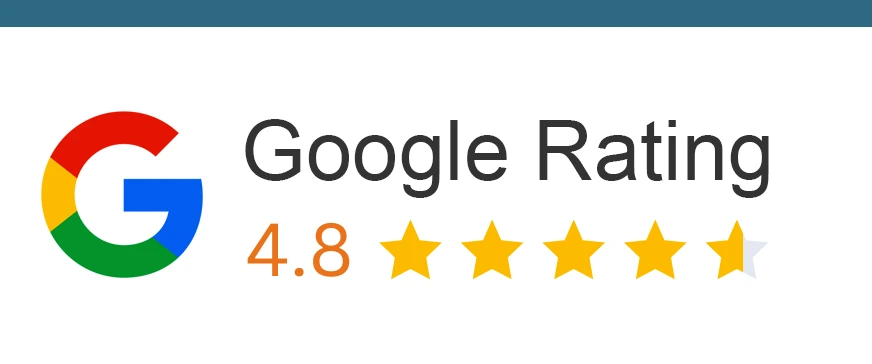Not just the Baby Boomers, but Millennials are equally exposed to financial scammers. How to protect yourself from a scam and how do you know that a loan company is legitimate in the UK? Read our blog with tips to identify the scams. Advance Fee Fraud
Every 21 minutes, falls victim to a fraudster, mostly owing to oversharing information. As per reports, people lost over £1.2bn to online fraudsters in the year 2018. The Covid-19 pandemic has already caused a lot of financial and mental distress among people. The last thing that you would want during these times, is to become a victim of a financial scam and lose their hard-earned money. Owing to the advancements in technology, everything has now become ‘digital’. Banks, as well as lenders, are resorting to online mediums to ease the process of lending money. Loan application forms are now just a click away, and so is the borrowed money. However, some destructive minds end up finding and exploiting the loopholes in this system to their advantage. The most common medium used to pull off these scams would be email, phone calls or SMS. In this blog, we will cover some common loan scams and how you can prevent them by reading in between the lines.
Different Types of Fraud – UK Scenario
We all have days when we’re not as attentive as we should be. There can be a fraudster on the other side of the call, and we wouldn’t notice because this is not our first instinct. A lot of fraud callers may take advantage of the fact that you’re preoccupied with work, and want to get rid of the call as soon as possible. So upon being asked for personally identifiable information, you may end up giving too many details. The list is endless, but we’ve curated the most common types of scams that people are susceptible to:
1. The Loan Fee Fraud
- A number of fraudsters use this scam to lure people who are applying for loans online. The way this works is that the fraudsters usually wait for you to complete your application. They would then approve your loan, but ask for an upfront fee, before transferring the borrowed amount to your account. They usually continue doing this until they’ve made enough money from a victim, and then disappear. The Financial Conduct Authority urges people to beware of these loan fee frauds. According to the regulator, the victims of such type of frauds are targetted while they search for loans online.
2. Phishing and Vishing
- Phishing and vishing are both common impersonation techniques used by scammers. In phishing, you might receive an email from a trusted source, such as your bank or HMRC, per se. The email will encourage you to click on a ‘link’ enclosed in it and log into your account. These subject lines may include phrases like “Your account has been locked” or “There was unusual activity in your account”. Such a critical subject line is enough to entice people into clicking on the email and giving in their personally identifiable information through the phishing link. While you may be thinking that it’s your bank’s legitimate website, you are actually entering this information into a fake website, which will store into a database. The scammer now has access to sensitive information, enough to make transactions from your account.
- Similarly, vishing refers to a practice wherein scammers call on the victim’s mobile, claiming to be a bank representative. Once they gain your trust, they will lure you into divulging your personal information, owing to some suspicious activity, or just a regular ‘check’. Once they have the information, for instance, card details or CVV, they can make fraudulent transactions and steal your money.
3. Universal Credit Fraud
- In July 2019, BBC covered the story of the ‘Multi-Million Pound Scam’. As per the report, more than a third of the claims are suspected to be fraudulent. Fraud rates for the Universal Credit claim are four times higher than other benefits. The easy targets for these scammers are people struggling with their finances. Fraudsters can access your information via unauthorised means to offer you a tailor-made loan. Once they get the claimants remaining information, they apply for the benefits and vanish with their pockets full. This leaves the claimant, who is completely unaware of the situation, in arrears to the DWP.
4. Clone Firms
- Fraudsters that are good at disguise, may use this technique to acquire personal information. In this technique, the scammer may contact you, pretending to be an ‘agent’ of a legitimate source, a bank per se and get you to divulge your personal information.
- 5. Property Fraud
- Property scams constitute 71% of frauds in the UK. A home buyer must always ensure that they’re buying their property from a legitimate source. The most common mistake in property fraud is making payments to a suspicious account. Some hackers may intercept the email communication with your agent and attempt to divert the deposit into their own.
How To Minimise Your Chances Of Falling Victim To A Loan Scam
Scams can be prevented by looking for ‘red flags’ in all loan offers. Below are 5 signs you can examine, to check the legitimacy of a lender:
- If your lender claims that you need not undergo a credit check, they’re making a false claim. ‘No credit check’ is a trick used by scammers to lure you into their trap. Credit checks are inevitable, and there will always be a ‘soft-check’ on your score. A legitimate lender will need to know your financial history before they decide to lend you money.
- Offers that require you to ‘act/claim immediately’, more often than not, can be bogus. So, it is important to be wary of such notifications.
- If your loan requires an upfront payment or advance fee, it is likely that it is a scam. FCA urges people to not give in to these demands.
- If your lender guarantees an approval, think twice about the offer. Scammers can entice you with such terms to prevent you from looking for other loans. A legitimate lender will not guarantee a loan without a full background check of your credit history.
- If your lender asks for repayment through other means, such as a gift card, do not oblige. Tracking payments made in cash or gift cards is impossible to track once the money has been spent. Always make payments through a source that you can keep track of.
How to Avoid Getting Trapped in a Loan Scam?
A fraudster may find their way to your door. But there are still a lot of things you can do to prevent them from scamming you. Here is a list of things to keep in mind before acting upon any exciting offers, put up by a fraud lender:
- Just like lenders perform checks on you, you perform a check on your lender. Check if your lender is on FCA’s approved lender’s list, before pursuing their offer.
- Lenders usually do not initiate contact, unless you have formally applied for a loan with their agency. A legitimate lender will not directly contact you unannounced.
- If the offer is too good to be true, it probably isn’t. Loan offers with no credit check, or guaranteed approval even with poor credit history, are definitive signs to watch out for.
- Legitimate lenders tend to spend a lot of money and attention into branding and marketing. Therefore, a legitimate lender will have a well-functioning and secured website. When you are entering any of your personal details on the website, look for the “padlock” symbol. Do not enter any information if the website is not secured.
- Check for reviews before engaging any further with the lender. Lenders who have good reviews would boast them on their website. Looking for a review or feedback from existing customers before accepting an offer is always a good idea to check legitimacy.
How to Find a Legitimate Loan Company in the UK?
- At LoanTube, we understand the value of your hard-earned money. And so, we have partnered with legitimate, highly reputed lenders, to make your lending experience seamless. You can now compare loans from multiple lenders, based on ‘Real Interest Rates’, with just a single application form. Remember that all the legitimate loan companies in the UK have to be authorised by the financial regulator (FCA). If a company is not registered by the FCA, then please report it to the authorities.
Maximise your options: Compare and apply for loans below with LoanTube
Apply Filters
Better Safe than Sorry…
As a result of increasing online fraud, we urge people to be careful about what they share over the internet. Personal information is the greatest resource for a scammer. If you feel something doesn’t add up, it is important to listen to your instinct. There is a very sleek chance of recovering money that you lose in a loan scam. This is because these online predators are hard to trace. However, if a scam is covered by FCA, the victim can apply for compensation. Thus, a little bit of scepticism is good when it comes to unrealistic loan offers, as it saves you a great ordeal.
Disclaimer:
The information provided in this blog is intended for general informational purposes only and does not constitute financial advice. Before making any decisions or taking action based on the content, we strongly encourage you to consult with a financial professional or directly with the Financial Conduct Authority (FCA) to ensure that you are fully informed. Please note that compensation for fraud is only available in cases involving FCA-regulated firms. Not all victims of financial scams will be eligible for compensation through the FCA, so it’s important to verify the details of any claim carefully.


